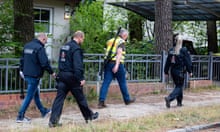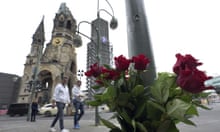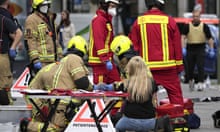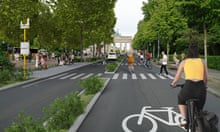Neon bodypaint, string vests and no-nonsense four-to-the-floor beats will return to the streets of Berlin this weekend as the legendary Love Parade techno event makes a comeback in the German capital after a hiatus of more than 15 years.
Saturday’s daytime outdoor event carries a new name – the Rave the Planet Parade – but is being organised by some of the same people who put together the first Love Parade on the eve of the fall of the Berlin Wall.
“The original spirit of the Love Parade hasn’t been present since 2003,” founder Matthias Roeingh, AKA Dr Motte, told the electronic music magazine Resident Advisor. “It’s now time to reactivate this spirit and make it experienceable for all.”
The Love Parade under its old name was discontinued in 2010, when 21 people suffocated and 652 others were injured in a crowd disaster in the western city of Duisburg, to where the event had relocated after its naming rights were sold to the owner of a chain of fitness studios in 2005.
The new not-for-profit parade will set out at 2pm and travel 7km across the German capital, from the Kurfürstendamm boulevard in the west to the Großer Stern roundabout in Tiergarten, where a final rally will take place.
Originally planned for 2021 but rescheduled due to the pandemic, the event has been crowdfunded with small donations, with which donors could buy mini raver figurines that were added to a model parade on display in central Berlin, and “fundraver” livestreamed DJ sets.
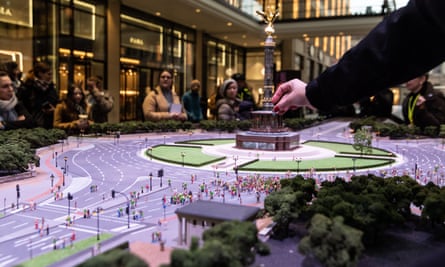
Organisers said the parade had been registered as a demonstration with 25,000 participants – a far cry from the 1.5 million who trekked through Berlin at Love Parade’s peak in 1999, but also a more sizeable crowed than the 150 ravers at the inaugural event.
About 150 electronic artists will perform on floats representing Berlin, Sweden, Belgium, Estonia, Poland, Ukraine and the Netherlands, among others. A UK float will be hosted by Save Our Scene, a campaign founded to keep Britain’s independent electronic music scene alive during the Covid-19 crisis.
If Love Parade’s original motto, Friede, Freude, Eierkuchen (“Peace, Joy, Pancakes”) was joyfully nihilistic, the Rave the Planet Parade presents itself in a slightly more serious guise.
Organisers told the Guardian that they had stayed in touch with the friends and families of the victims of the Duisburg crush and had decided against holding a commemorative event after consulting with them.
Instead, political demands will ring out in German and English over loudspeakers every hour, some in earnest, others more tongue-in-cheek.
They include calls for an end to the decades-old “dancing ban” on Good Friday, an unconditional basic income for artists and culture-sector workers, and the recognition of Berlin’s techno culture as an intangible cultural heritage in Unesco’s inventory.
For the Sunday, there are plans to recruit volunteers to retrace the ravers’ steps and collect rubbish. Confetti, the organisers warn, looks pretty but is non-biodegradable.
The techno parade makes a comeback in Berlin about four months after the city’s nightclubs reopened in early March, after almost two years of closures and strict hygiene rules.
During clubland’s shutdown, many young Berliners discovered makeshift parties in the city’s public parks as an acceptable alternative and appear to have developed a taste for outdoor clubbing: Berlin’s senate is debating an alcohol ban in parks to curb the ongoing partying.




